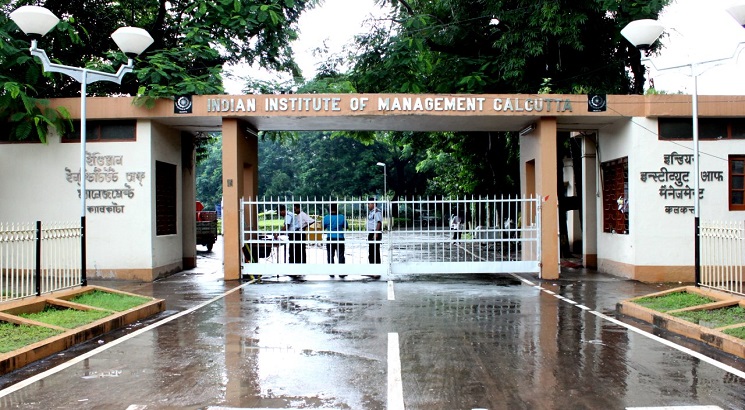Shrinking Autonomy: What are the new rules for IIMs?
R. Radhika | November 15, 2023 | 02:40 PM IST | 4 mins read
IIM Rules: The President can dissolve an IIM board of governors if it doesn’t comply with orders. There are new eligibility criteria for directors.

NEW DELHI: The amendment to the Indian Institutes of Management (IIM) Act 2017, now in effect, grants significant powers to the President of India including the power to dissolve or suspend the board of governors and appoint or remove directors.
The new rules based on the Act, notified on Monday, will confer major powers upon the President of India who is now the “Visitor” of each IIM. All 21 IIMs are run by boards of governors. The visitor, according to the new rules, will have the complete power to nominate the chairperson of the board of governor, the highest decision-making body that governs an IIM. The board of governors makes crucial decisions like forming a search panel to appoint new directors, policy decisions like admission fee and approval of annual budgets among others.
In 2015, the education ministry had proposed the concept of a Visitor in a draft Bill. The decision, however, never materialised due to opposition from IIMs on the grounds of dilution of autonomy. The education ministry notified the new rules in a gazette notification on November 11 stipulating terms and conditions that curb the absolute autonomy given to the IIMs in 2017.
The decision to introduce a Visitor is in line with the statutes of central universities and Indian Institutes of Technology (IITs) where the President of India appoints vice-chancellors and directors.
Union minister, Dharmendra Pradhan, while introducing the Bill in the monsoon session of the parliament had clarified that the centre had no intention of usurping the academic accountability from the institutes instead it wants to ensure their management accountability. The IIMs have been in discord with the government over dilution of autonomy even before on the matter of one-year post-graduate programmes.
Visitor’s Powers: IIM Board of Governors
At any given time, according to the new rules, the Visitor will be able to dissolve or suspend the board, under three circumstances – if the board is unable to discharge the functions or perform the duties imposed on it under IIM Amendment Act 2023, if the board “persistently defaulted” in complying orders issued by the Visitor, or if the Visitor finds it “necessary” to dissolve the board in “public interest”. The 2017 act did not have any provisions for the dissolution of the board.
The Visitor will then appoint an interim chairperson and members of an interim board for a period of six months. After the expiration of this period the Visitor will have to nominate a new chairperson as well as ex officio members who will in effect appoint a new board. The new rule also allows former board members to be re-elected to the board.
What has changed for IIMs?
Old rule | New rule |
No Visitor, Board of Governors (BoG)-- highest decision-making body | Visitor holds power to appoint and dissolve board of governors |
Director appointed by BoG | Director nominated by the Visitor |
Director must be a “distinguished academic with PhD or equivalent” | Director must also have “first-class degree in both Bachelor’s and Master’s level”. |
Director can be removed only by BoG | Prior approval of Visitor required to remove director |
BoG’s decision is final | Visitor’s decision is final |
IIM director’s qualification, appointment, removal
With the new rules, the Centre has also made it mandatory for directors to have first-class degrees in both Bachelor’s and Master’s level along with a PhD or equivalent from a reputed institute.
Earlier, the criteria used to be a “distinguished academic with PhD or equivalent” and there was no mention of the required division for the degrees. A significant addition, the rule has come against the backdrop of controversy over the appointment of IIM Rohtak’s director Dheeraj Sharma. Sharma’s appointment and the fact that he continues to hold the post has been challenged in the High Court of Punjab and Haryana.
The Visitor will also have the final say in the appointment of the director of any IIM which was earlier a mandate of the board alone. The board of governors can nominate three candidates and the visitor will nominate one of the names and send it back to the board for appointment. Earlier, the director would be appointed by the board and ultimately it would be ratified by the ministry.
Otherwise, “provided that where the Visitor is not satisfied with the names recommended by the Board, he or she may ask the Board to make fresh recommendations. If the Visitor is not satisfied with the panel of names recommended by the Board, the Board shall get a fresh panel of three names recommended through the same search-cum-selection committee or a fresh search-cum-selection committee,” the gazette notification states.
The visitor also has the power to terminate the services of a director at any time by giving three months’ notice in writing or three months’ basic pay. At the time of removal, “the Director shall be given an opportunity to express the views before any direction is given under sub-rule (1),” the gazette states further.
Follow us for the latest education news on colleges and universities, admission, courses, exams, research, education policies, study abroad and more..
To get in touch, write to us at news@careers360.com.
Next Story
]Muslim Students in Higher Education: Enrolment, GER drop but more women joining than men
Analysis of All India Survey on Higher Education data reveals that the percentage of Muslims out of the total enrolment dropped from 5.45% in 2019-20 to 4.64% in 2020-21. However, gender parity improved.
Atul Krishna